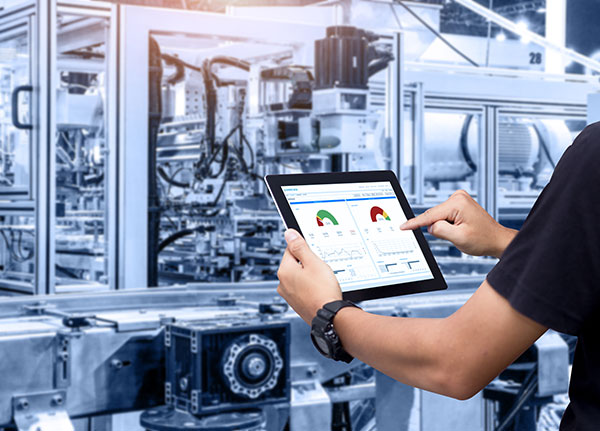AI will affect nearly every job within manufacturing and employees will need a different set of skills to work in an AI-powered environment.
by Gavin Verreyne, SYSPRO
Attracting and retaining talent is a huge issue right now for manufacturers. In fact, it’s their No. 1 problem, with 74.4% of manufacturers citing it as a primary challenge, according to the National Association of Manufacturers July 2023 Report. Addressing the labor shortage is a top priority for the manufacturing C-suite.
The intuitive solution is to offer higher pay, but research shows this is actually not the most powerful way to increase retention. Research by Gallup, for instance, shows that engaged employees need a pay bump of 31% before they’d consider jumping ship for another company, while their unengaged colleagues need just 22%. Likewise, Gallup found that teams with low engagement have a turnover rate that’s as much as 43% higher than those that are highly engaged. Additionally, Gallup found that the No. 1 reason for employees leaving is the lack of professional development.
So, engagement and professional development matters a lot when it comes to hiring and keeping skilled people. Everyone wants to work in an environment where they do interesting work, learn useful skills and feel like they are part of a team that’s accomplishing something meaningful. Creating this kind of environment, however, isn’t easy, especially in a factory, where many employees’ daily tasks are frequently repetitive and uninteresting.
Thankfully, harnessing the power of artificial intelligence can not only help automate many of these repetitive tasks, but can further empower employees so they can spend their time on higher-value, meaningful work that provides opportunities to collaborate and innovate. Ultimately, AI can improve manufacturers’ efficiency while simultaneously increasing the quality of the work experience for employees. In fact, AI and generative AI in particular will transform the skills that manufacturers will need to compete and that employees will require these skills to find employment within the sector.

Perhaps the most near-term benefit of AI is that it will be able to perform a high volume of repetitive tasks, empowering people to focus their attention on higher value tasks. Just as robotics and automation have transformed much of the factory floor, AI will uncover trends that can be used to identify and automate informational tasks such as transferring data across systems, processing orders and completing a wide array of queries and calculations. But that’s just the tip of the iceberg.
Maintenance will become much more proactive, thanks to AI’s ability to predict when machines are likely to fail, based on sensor data, which will increase uptime and productivity. Those who repair and maintain equipment will know that the work they’re doing isn’t just checking a box, but is truly preventing the shutdown of critical equipment, enabling an entire factory to continue operations. AI can also identify data points across the manufacturing plant that can be used to predict breakdowns, bottleneck or quality issues before they happen.
Regarding the supply chain, AI will excel at demand forecasting, identifying potential bottlenecks and finding opportunities for optimization. With this information at their fingertips, supply chain managers can make more informed decisions that will have an even greater impact on their organizations. AI will predict potential issues and opportunities to make gains that could streamline the supply chain.
AI will vastly improve machine vision to improve quality, finding defects that human eyes might not ever catch. With these insights, quality managers can delve deeply into the causes of these defects to facilitate changes that will significantly improve customer satisfaction, reduce returns and increase profitability. Predictive analytics stemming from machine learning is central to AI.
AI can even augment engineering’s work by producing hundreds of potential designs from which to choose for new products. Routine, mundane design tasks will soon be largely automated, enabling engineers to focus much more time on the more complex issues that truly require their skills.
In each of the cases described above — which, to be frank, just scratches the surface of AI’s potential — workers spend less time on repetitive tasks so they can put all of their talent into projects that truly make a difference, which increases engagement. Partnering AI with human ingenuity can increase productivity by more than 50%.
AI-skilled workers don’t necessarily need expertise in data analytics, coding or machine learning, though having employees or a close partner with these skills will be necessary. What nearly everyone will need are skills that enable them to:
AI will transform the way we work in manufacturing, and nearly every job will be affected. That said, AI is a tool, and, like any tool, its impact depends on how it is used. So long as the workforce is trained and upskilled to work with AI in an effective way, AI can improve productivity, increase efficiency and also create a more engaged workforce — all of which are critical to success in an environment where skilled employees are difficult to recruit and retain.

Scott Ellyson, CEO of East West Manufacturing, brings decades of global manufacturing and supply chain leadership to the conversation. In this episode, he shares practical insights on scaling operations, navigating complexity, and building resilient manufacturing networks in an increasingly connected world.